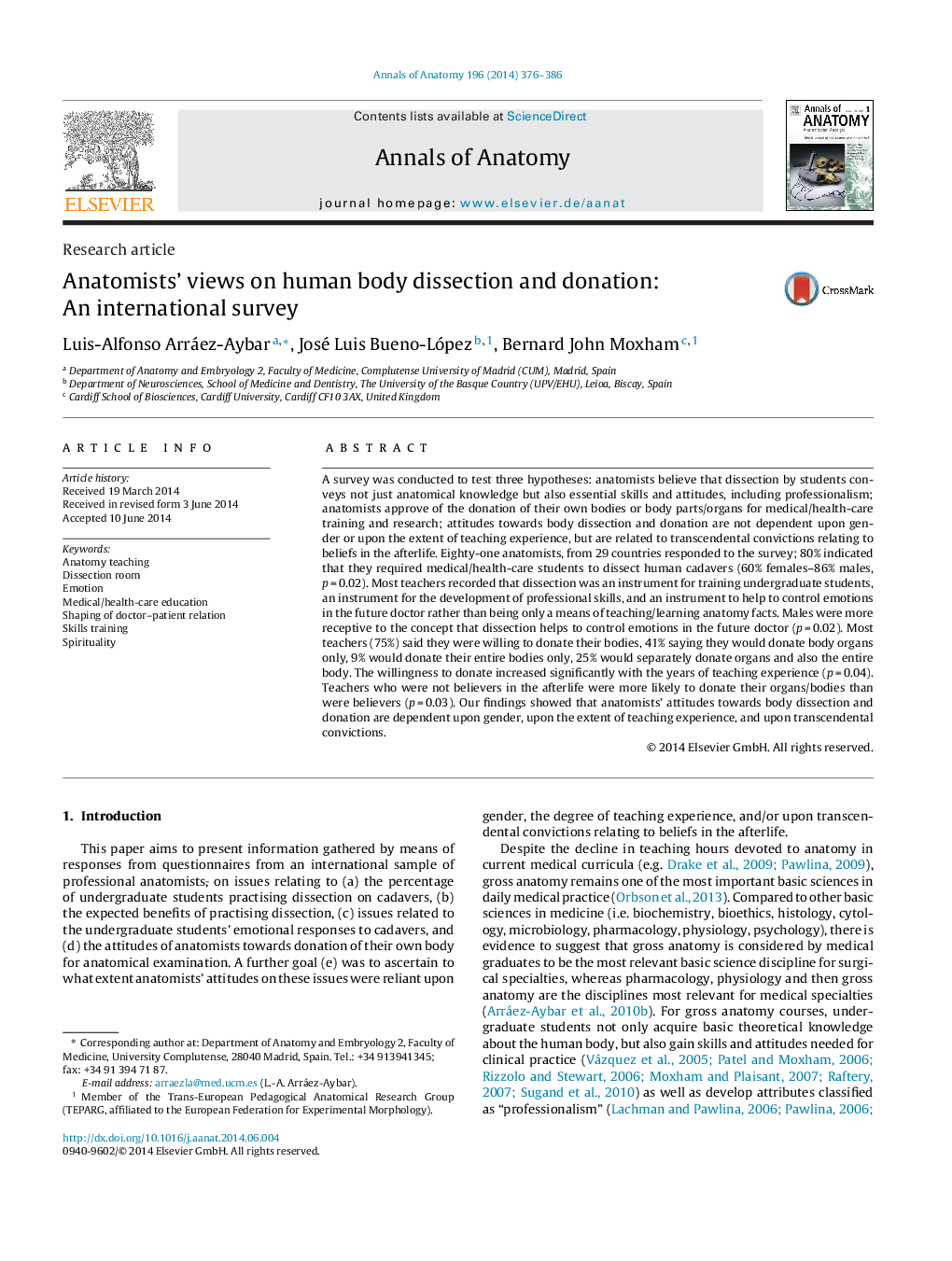| Article ID | Journal | Published Year | Pages | File Type |
|---|---|---|---|---|
| 8461035 | Annals of Anatomy - Anatomischer Anzeiger | 2014 | 11 Pages |
Abstract
A survey was conducted to test three hypotheses: anatomists believe that dissection by students conveys not just anatomical knowledge but also essential skills and attitudes, including professionalism; anatomists approve of the donation of their own bodies or body parts/organs for medical/health-care training and research; attitudes towards body dissection and donation are not dependent upon gender or upon the extent of teaching experience, but are related to transcendental convictions relating to beliefs in the afterlife. Eighty-one anatomists, from 29 countries responded to the survey; 80% indicated that they required medical/health-care students to dissect human cadavers (60% females-86% males, p = 0.02). Most teachers recorded that dissection was an instrument for training undergraduate students, an instrument for the development of professional skills, and an instrument to help to control emotions in the future doctor rather than being only a means of teaching/learning anatomy facts. Males were more receptive to the concept that dissection helps to control emotions in the future doctor (p = 0.02). Most teachers (75%) said they were willing to donate their bodies, 41% saying they would donate body organs only, 9% would donate their entire bodies only, 25% would separately donate organs and also the entire body. The willingness to donate increased significantly with the years of teaching experience (p = 0.04). Teachers who were not believers in the afterlife were more likely to donate their organs/bodies than were believers (p = 0.03). Our findings showed that anatomists' attitudes towards body dissection and donation are dependent upon gender, upon the extent of teaching experience, and upon transcendental convictions.
Related Topics
Life Sciences
Biochemistry, Genetics and Molecular Biology
Cell Biology
Authors
Luis-Alfonso Arráez-Aybar, José Luis Bueno-López, Bernard John Moxham,
